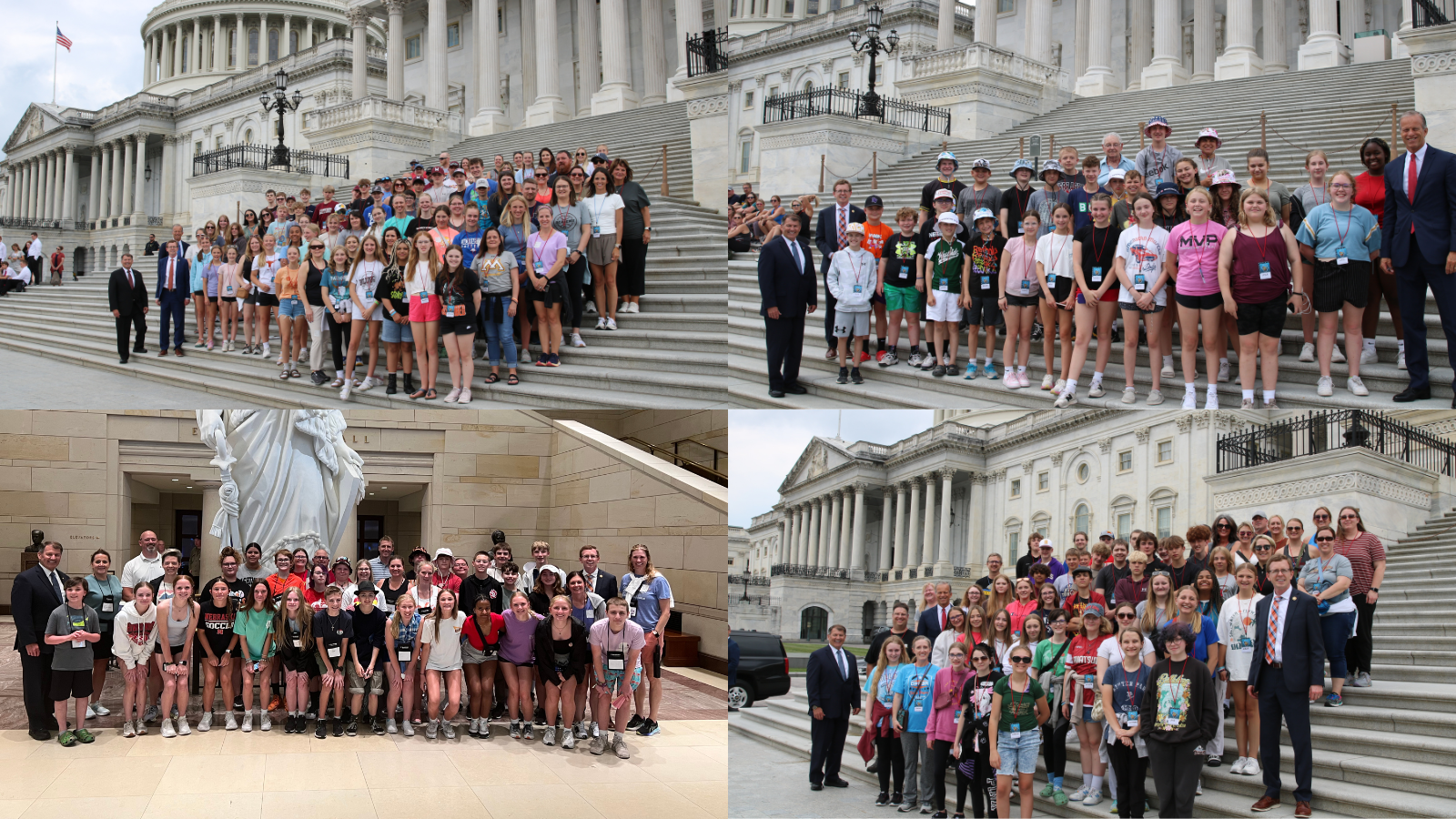Weekly Round[s] Up: June 3-9, 2024
Welcome back to another edition of the Weekly Round[s] Up! We had another busy week in the United States Senate, getting back to business after our Memorial Day in-state work period. While I was back in South Dakota, I attended the ‘Let Freedom Fly International Airshow’ in Pierre which was the product of many hours of work by local and national organizations. Events like these are important as we look to recruit the next generation of young men and women who will serve our country in the military. I went to Brookings and Watertown for Memorial Day activities to recognize and honor our veterans. I also went to Sioux Falls and hosted a health care roundtable with NIH Director Bertagnolli and South Dakota health care stakeholders on how AI could be the key to curing cancers and other deadly diseases. I am grateful Dr. Bertagnolli accepted my invitation to visit South Dakota and see firsthand all the work being done in the state. This past week in Washington, we welcomed several South Dakota groups to our nation’s capital, including nearly 250 students and parents from South Dakota schools. I also introduced two new pieces of legislation which will impact folks living in the rural parts of our country. More on that in my Weekly Round[s] Up:
South Dakotans I met with: Students from Madison, Dakota Valley, Harrisburg and Sioux Falls; South Dakota members of the U.S. Global Leadership Coalition; members of the South Dakota Health Care Association; South Dakota members of the National Grain and Feed Association; Dr. Steve Smith, professor at the South Dakota School of Mines; Mike Mimick of South Dakota’s UBS branch; and Colby Olson with the South Dakota Cattlemen’s Association. I also stopped by a gathering hosted by the South Dakota State Society on Wednesday to celebrate 605 Day.
Met with South Dakotans from: Aberdeen, Black Hawk, Dakota Dunes, Harrisburg, Madison, Marion, Mitchell, Rapid City and Sioux Falls.
Other meetings: General Ahmad Husni, Director of Jordan’s General Intelligence Department; Harry Coker Jr., National Cyber Director; Peng Zhao, CEO of Citadel Securities; Ken Kartsen, Senior VP at Trellix; Seleshi Bekele, Ethiopia’s Ambassador to the United States; Directors from national labs affiliated with the Department of Energy; and the Defense Strategy Institute’s SmallSat & Space Access Summit. I spoke with members of the Healthcare Leadership Council about our work on artificial intelligence in the Senate.
I also attended our Senate Prayer Breakfast, where our speaker was Mary Landrieu, a former United States Senator from Louisiana. While our prayer breakfast consists mostly of current members of the Senate, we always enjoy welcoming our former colleagues back to participate.
Votes taken: 8 – most of these were on nominations to a judge position in the District of Columbia, as well as executive positions in the Department of State and the Nuclear Regulatory Commission.
We also voted on the Right to Contraception Act. I voted no on this bill. Senate Democrats brought this legislation to the floor as an election year scare tactic. There is no threat to contraceptive access in the United States. There are no restrictions on contraceptives. They are required by law to be offered at no cost by health insurers. In addition, if you read the fine print, this bill could open the door for public elementary schools to offer contraceptives to little kids. It could even allow the federal government to force religious institutions and schools to offer contraceptives. It’s massive government overreach.
Legislation introduced: This week, I introduced the Postal Processing Protection Act, legislation that would require the US Postal Service to consider consequences for rural areas during their closure or downsizing review process. Rural mail services are a lifeline for residents of many communities across South Dakota. USPS should be required to consider the impact of closing processing facilities on rural residents, just as they consider it when closing retail locations. I’m pleased to be introducing this legislation to make certain rural residents receive their mail in a timely and efficient manner.
I also introduced legislation that would reauthorize the Reclamation Rural Water Supply Act which lapsed in 2016. This bill would allow the Bureau of Reclamation to carry out the required feasibility studies for rural water supply projects instead of Congress. This would streamline the process of getting approval for rural water improvement systems including three rural water projects in South Dakota: the Water Investment in Northern South Dakota (WINS), the Western Dakota Regional Water System and the Dakota Mainstem which are all looking to spread water from the Missouri River throughout the state.
Student Loan Letter: I joined my colleagues Senator Bill Cassidy (R-La.) and Representative Virginia Foxx (R-N.C.) in sending a letter to the Department of Education urging them to withdraw their latest student loan forgiveness plan. This proposed rule will cost hard-working Americans an additional $147 billion and bring the total student loan debt transferred to taxpayers to as much as $1 trillion.
Hearings: I had one hearing in the Select Committee on Intelligence.
Classified briefings: I attended one classified briefing this week: our bi-weekly cyber education seminar on U.S. Cyber Command and International Partnerships.
My staff in South Dakota visited: Aberdeen, Brookings, Deadwood, Mitchell, Salem, Sturgis and Vermillion.
Steps taken this past week: 44,890 steps or 22.57 miles.
Photos of the week:

Students from Madison, Dakota Valley, Sioux Falls and Harrisburg